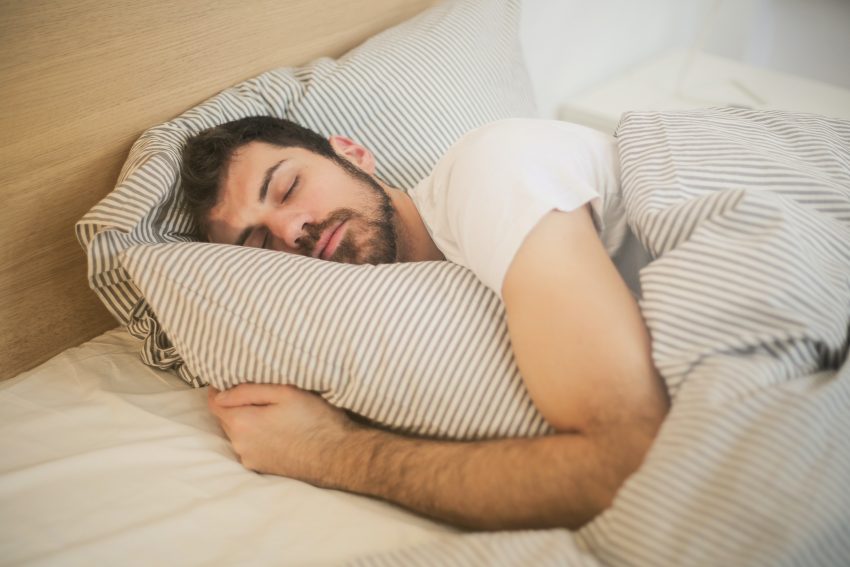Sleep is a vital component of our health and wellbeing, and we need to get adequate sleep every night to function optimally. Unfortunately, sleep deprivation has become a common problem in today’s fast-paced world, with many people sacrificing their sleep to meet the demands of their busy lives. In this article, we will discuss the impact of sleep deprivation on physical and mental health and some common reasons why it occurs.
What is Sleep Deprivation?
Sleep deprivation is a condition that occurs when an individual fails to get enough sleep regularly. The amount of sleep a person needs varies depending on age, lifestyle, and other factors. However, on average, adults need between 7 to 9 hours of sleep every night, while teenagers and adolescents need even more rest, typically between 8 to 10 hours.
Common Reasons for Sleep Deprivation
There are various reasons why people may not be getting enough sleep, and some of the most common ones include:
- Stress and Anxiety: High stress and anxiety levels can make it difficult for people to fall asleep and stay asleep.
- Work-Related Issues: Work-related stress, long hours, shift work, and night shifts can all contribute to sleep deprivation.
- Lifestyle Factors: Poor sleep habits, like staying up late and not having a regular sleep schedule, can also cause sleep deprivation.
- Medical Conditions: Certain medical conditions, such as sleep apnea, restless leg syndrome, and chronic pain, can interfere with a person’s ability to get enough sleep.
- Physical Impacts of Sleep Deprivation
One of the main reasons people experience sleep deprivation is stress or other personal issues, such as financial problems or relationship difficulties, which can cause difficulty in sleeping at night. It is essential to address any underlying issues you may have which are causing your lack of sleep so that you can get adequate rest each night.
Physical Impacts of Sleep Deprivation
One of the most noticeable physical consequences of sleep deprivation is fatigue. Fatigue can lead to decreased productivity, accidents, and injuries. People who do not get enough sleep are more likely to experience motor vehicle accidents, falls, and other accidents. Sleep-deprived individuals are also more likely to make mistakes at work, and their cognitive abilities may be impaired, leading to poor decision-making.
Sleep deprivation can have a significant impact on our physical health. When we do not get enough sleep, our bodies cannot repair and rejuvenate themselves, leading to various health issues. Some of the most common physical impacts of sleep deprivation include:
- Obesity and Weight Gain: Sleep deprivation has been linked to an increased risk of obesity and weight gain. Lack of sleep can disrupt the hormones that control hunger and appetite, leading to overeating and weight gain.
- Increased Risk of Cardiovascular Disease: Chronic sleep deprivation can increase the risk of developing cardiovascular disease, including hypertension, stroke, and heart attacks.
- Weakened Immune System: Sleep deprivation can also weaken our immune system, making us more vulnerable to infections and illnesses.
- Decreased Cognitive Function: Sleep deprivation can negatively impact our cognitive function, reducing alertness, concentration, and memory.
Sleep deprivation can also affect a person’s social life. People who are not getting enough sleep may have trouble socialising and communicating with others. They may feel more withdrawn and less interested in social activities.
Mental Impacts of Sleep Deprivation
Sleep deprivation can also have a severe impact on our mental health. Lack of sleep can interfere with our ability to think, process information, and regulate our emotions, leading to various mental health problems. Some of the most common mental impacts of sleep deprivation include:
- Mood Disorders: Sleep deprivation can cause irritability, mood swings, and depression. It can also exacerbate symptoms of pre-existing mood disorders.
- Decreased Concentration and Memory: Sleep deprivation can impair our ability to concentrate, focus, and remember things.
- Increased Risk of Anxiety Disorders: Lack of sleep can lead to increased levels of anxiety and stress, which can increase the risk of developing anxiety disorders.
- Decreased Performance at Work and School: Sleep deprivation can negatively impact our ability to perform well at work or school, leading to reduced productivity, performance, and creativity.
Tips for Getting a Good Night’s Sleep
Getting enough sleep is essential for maintaining good physical and mental health. Here are some tips for getting a good night’s sleep:
- Stick to a regular sleep schedule. Try to go to bed and wake up at the same time every day, even on weekends.
- Create a relaxing sleep environment. Make sure your bedroom is dark, quiet, and cool. Use comfortable bedding and pillows.
- Limit screen time before bed. The blue light emitted by electronic devices can disrupt your sleep.
- Avoid caffeine and alcohol before bed. Both can interfere with sleep.
- Exercise regularly. Exercise can help you fall asleep faster and sleep more soundly.
- Don’t eat large meals before bed. A heavy meal can interfere with sleep.
- Practice relaxation techniques. Meditation, deep breathing, and other relaxation techniques can help you fall asleep more easily.
Conclusion
Sleep deprivation is a severe problem that can significantly impact our physical and mental health. Lack of sleep can lead to obesity, cardiovascular disease, weakened immune system, decreased cognitive function, mood disorders, anxiety, and decreased performance at work or school. We must prioritize our sleep and ensure quality sleep every night. This can be achieved by creating a regular sleep schedule, avoiding caffeine and alcohol before bedtime, and creating a sleep-conducive environment in your bedroom.
Additionally, suppose you are experiencing sleep deprivation due to a medical condition, such as sleep apnea, restless leg syndrome, or chronic pain. In that case, seeking medical treatment to address the underlying issue is essential.
Getting sufficient rest is one of the most important things you can do for your overall health. The consequences of sleep deprivation can have severe short-term and long-term implications on physical and mental wellbeing, so it is essential that people take steps to ensure they are getting enough quality rest each night. This will help improve energy levels during the day and reduce stress levels, boost immunity, and protect against other physical and mental health issues. Taking the necessary steps to ensure you are well-rested is one of the best things you can do for your overall wellbeing.
More information can be found here:
1. https://www.sleepfoundation.org/how-sleep-works/how-much-sleep-do-we-really-need
2. https://www.healthline.com/nutrition/13-benefits-of-good-sleep
4. https://www.nhs.uk/live-well/sleep-and-tiredness/10-tips-to-beat-insomnia/





